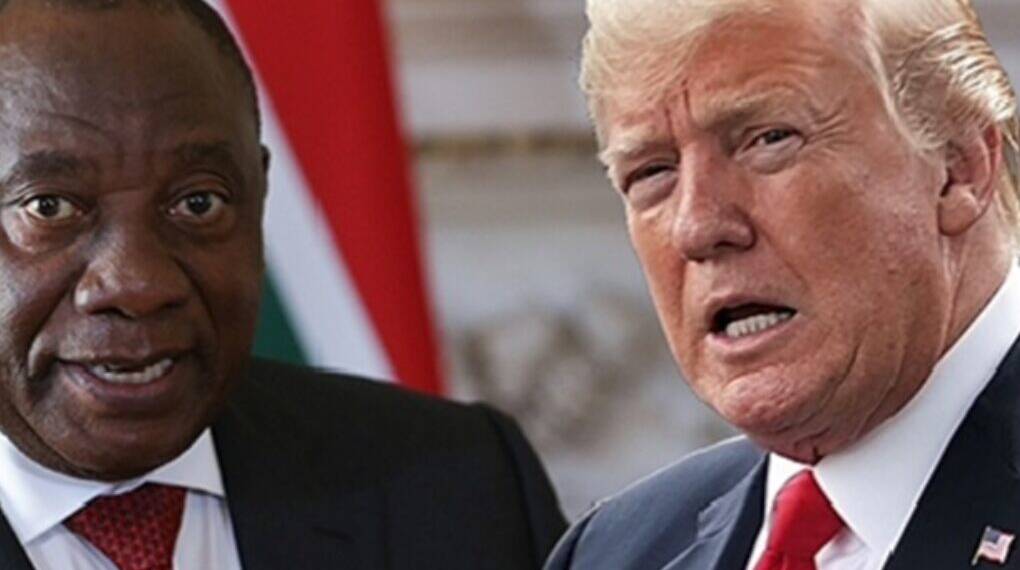President Donald Trump has announced that he may skip the upcoming G20 Leaders’ Summit in Johannesburg, South Africa, this November, citing deep disagreements with South Africa’s domestic and foreign policies.
Speaking aboard Air Force One on Tuesday after returning from a trade-focused visit to Scotland, Trump told reporters, “I think maybe I’ll send somebody else because I’ve had a lot of problems with South Africa. They have some very bad policies. Very, very bad policies, like policies where people are being killed.”
The remarks come amid escalating tensions between Washington and Pretoria, with Trump repeatedly accusing the South African government of targeting White Afrikaner farmers through land expropriation and failing to curb violent crime. Trump has also sharply criticized President Cyril Ramaphosa, with whom he had a tense Oval Office meeting in May.
During that meeting, Trump presented Ramaphosa with news clippings and a video that he claimed showed evidence of violence and persecution against White farmers—allegations widely disputed by South African officials and international observers.
Strained Diplomatic Relations
The Trump administration has adopted a confrontational stance toward South Africa since Ramaphosa’s government pursued land reform policies aimed at redressing apartheid-era inequities. Trump has characterized these reforms as racially motivated land seizures—an assertion Ramaphosa firmly denies.
Tensions were further inflamed when South Africa filed a high-profile case against Israel at the International Court of Justice (ICJ), accusing it of genocide in its military campaign in Gaza. Both the Trump and Biden administrations have condemned the case as baseless and politically motivated. The Trump administration views it as an attack on a close U.S. ally and has expressed concern over what it sees as Pretoria’s increasingly adversarial foreign policy.
In February, Trump signed an executive order cutting U.S. financial aid to South Africa, citing concerns over governance and “racially discriminatory economic practices,” including the country’s Black Economic Empowerment (BEE) policies.
G20 Fallout
South Africa currently holds the rotating G20 presidency, and Trump’s potential absence from the November summit would mark a significant diplomatic snub. Secretary of State Marco Rubio has already boycotted a G20 foreign ministers’ meeting in South Africa earlier this year over the same policy disputes.
Despite the controversy, President Ramaphosa has urged Trump to reconsider and attend the summit, emphasizing South Africa’s desire to maintain strong bilateral relations. He has dismissed the accusations of “white genocide” as false and inflammatory, arguing that his government’s land reform efforts are legally grounded and necessary for achieving long-overdue social equity.
Broader Context
The diplomatic rift also reflects deeper ideological divisions between the two nations. Washington has long expressed discomfort with Pretoria’s alignment with countries like Russia, China, and Iran within BRICS, and its criticism of Western positions on global conflicts, including Gaza.
South Africa, for its part, accuses the U.S. of double standards on human rights and foreign intervention, pointing to its support for Israel despite mounting civilian casualties and a humanitarian crisis in Gaza.
With months to go before the G20 summit, it remains unclear whether Trump will reverse his position or send a high-level representative in his place. The outcome could signal the future direction of U.S. policy toward Africa’s most industrialized—and diplomatically assertive—nation.








